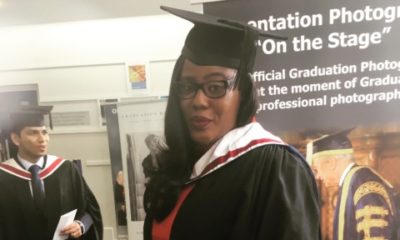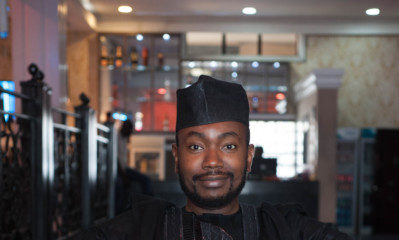Career
Move Back to Nigeria: Opy Onas Advocates Understanding the Nigerian Culture in Order to Get Things Done
 Move Back to Nigeria is a series on BellaNaija which aims to encourage young and not-so-young professionals in the diaspora who are trying to make the decision of whether to move back to Nigeria. In collaboration with the brilliant team at MoveBackToNigeria.com, we hope to bring you a weekly interview with individuals who have successfully made the leap, considering the leap, as well as those who have tried it and realized it is not for them. MoveBacktoNigeria.com’s mission is to showcase stories of Nigerians abroad who have moved back home and are taking giant strides, often against all odds and to serve as inspiration to others.This, however, does not preclude us from sharing stories of the people who have moved back and are facing various challenges.
Move Back to Nigeria is a series on BellaNaija which aims to encourage young and not-so-young professionals in the diaspora who are trying to make the decision of whether to move back to Nigeria. In collaboration with the brilliant team at MoveBackToNigeria.com, we hope to bring you a weekly interview with individuals who have successfully made the leap, considering the leap, as well as those who have tried it and realized it is not for them. MoveBacktoNigeria.com’s mission is to showcase stories of Nigerians abroad who have moved back home and are taking giant strides, often against all odds and to serve as inspiration to others.This, however, does not preclude us from sharing stories of the people who have moved back and are facing various challenges.
We are delighted to bring you an interview this week with Opy Onas, a leading Nigerian business coach and authour, who uses his personal experiences to bring about positive change to the lives of youth in Nigeria and beyond. Opy Onas, got involved with ‘the wrong crowd’ while at University, but was able to turn things around, building successful businesses and ultimately publishing a book which got launched at the UK Houses of Parliament. Read on to find out more about his journey, and his advice to Nigerians in the diaspora thinking about moving home to further their careers.
Thanks for speaking to us. Can you please introduce yourself?
My name is Ope Onaboye, but I am known as Opy Onas professionally. I am a speaker, author, business coach and a business owner.
When and why did you leave Nigeria?
My dad was based in the UK and so, he brought us over for educational reasons.
Can you take us through your educational background?
I studied computing with business management at Kingston University.
Any particular reason for computing and business?
I always thought that I was going to go into IT and it was strange because even though I didn’t really enjoy the IT part of the course, I enjoyed the business management aspects. Interestingly, I never attended many of my classes but I still passed my business modules. I am not very academic, so the whole masters and Ph.d thing did not appeal to me so I stopped after my bachelors degree.
And what did you do after school?
For some background, when I was growing up and when I first got into university, I got involved with the wrong crowd, so for the four years at University, I spent most of my time on the wrong side of the law. I was quite young then and then sometime in 2009, after a personal experience, I told myself I couldn’t continue living that way. I decided to start afresh.
While ‘Starting over’, was there anything that jumped out to you?
The key part for me, was taking my Christian faith more seriously. I always knew that I had huge potential. So when I graduated from university in 2009, I started looking for a job but I knew that the 9-5 gig was not for me. The thing about life is that, once you have been a hustler on the street, that hustling mentality is always going to be a part of you, either in a positive way or in a negative way. So I searched for jobs and in 2010, one of my friends took me through the process of setting up an estate agency in the UK. I then decided that from my bedroom, with my laptop, I will setup my own estate agency. I got a friend to build me a website, I printed business cards and started going around different landlords advertising my services. That was how I started my own estate agency with a few clients on board and from then on, several people started approaching me for information and guidelines on how to setup their own businesses, so I started working with people and helping them setup their businesses. Eventually, I saw that there were many people who really wanted to startup their own businesses but didn’t know how to, which led me to start running seminars and writing a book about it.
You’ve been very open about your challenging background, how did you transform your life?
Honestly, nothing comes easy, in whatever we are trying to do, nothing comes easy at all. To me, it is understanding what I am called to do, understanding what my purpose is as an individual and saying to myself, this is what i am called to do and this is what i am going to do. Honestly it is not easy and it is not easy at all but we keep on.
What inspired you to write a book?
The same thing that inspired me to help people. I am driven by change in people.
This is really interesting… Was it something you had ever thought you would do?
No. Not at all.
What was the book writing experience like?
It was all very unplanned. I was launching a workshop, an academy for start-ups and was writing out the materials and in one day, I found myself writing and writing out ideas. I then realised there was something there and so, I kept at it. Starting in September 2011, and by January 2012, I had finished the first draft of my book. It took about four months, it was intensive, day and night.
What is the book about?
The book is titled ‘Turn Your Passion Into Your Profession‘ and it is a step by step process of finding what you love and making money out of it.
How did you find the process of writing, editing and finding a publisher, what was it like for you?
I think again, I will go back to the fact that once you are a hustler, you will forever be a hustler. So I thought to myself: ‘I am going to write a book and I will launch this book at the UK House of Parliament’. And this was me not even knowing how that would happen. So I said to myself this is going to happen and it did. It was so fulfilling for me and in terms of the publishing, I researched the whole process of book publishing and learnt everything about it. From there, I set up my own publishing company.
How were you able to juggle all of these together, your seminars, workshops, book writing and publishing?
Writing the book was a tough process because it took a lot of dedication, hard work and sleepless nights, writing until six am in the morning but I had to do it because, I didn’t have a 9-5. I didn’t have an alternative. It had to be done. The others were just going along cohesively.
In 2013, I realised that I wanted to give other young people an opportunity too. So I launched a youth development organisation that works with the government to support young people back into work or into setting up their own businesses which was in London.
How was that received?
It was fantastic, we launched the first major programme in February of 2013 and it was amazing. This is because it was all about using my own journey as a road map for them, which is how to come off the streets (i.e drug dealer, a fraudster) take the skills you obtain from the streets and transform them to a positive lifestyle. It was a very successful programme and since then i have just been expanding the different companies in the UK.
Very inspiring… And has any of this work taken you to Nigeria?
In 2012, my passion for Nigeria got ignited, I thought to myself that since, we are helping thousands of people yearly in the UK, I really should take it to Nigeria to help young people who need this facility. This is because unemployment in Nigeria is at really crazy levels.
I then thought about how we could help young people in Nigeria to understand how to become job creators rather than job seekers and in 2013, while I was doing some speaking engagements, I was invited to Nigeria by the Lagos Business School to come and speak as part of Global Entrepreneurship. Whilst there, some redeemed churches invited me to organise some training for their youth members.
From then on, I decided what to do in Nigeria and there was a programme that I had launched in the UK, called the Passion to Profession Tour. It was a road show going across different universities and institutions, teaching students how to start thinking about becoming self employed even whilst at University. I wanted to take the same thing to Nigeria, tour several institutions in the country and teach these students how to become their own bosses. I started working on that in December last year and we fortunately got the Lagos State government to partner with us on the project which we eventually did in May of 2014.
What was the reception for your work like in Nigeria?
It was very reassuring. When I went there and started speaking for example in Lagos business school, the ‘hunger’ in the youths was palpable. When I walked out of the room, many people just followed me to tell me how interested they were in my services. This was really encouraging and I saw that there was a need for it in Nigeria which is why I decided to come back to do more things.
Having identified the need for your range of services, how do you intend to meet this need in Nigeria?
In different ways. For instance, in May, we had a passion to profession tour which was only in Lagos State at that time and we toured four institutions which were Unilag, LASU, Federal College of Education and Saint Augustine College of Education. We delivered the training to about a thousand students in total. But now, we are working on expanding the same programme to different states and we have also established a company in Nigeria to that effect.
What are your plans for yourself and your brand in years to come?
We have started running programmes for corporate organisations in Nigeria. This is because we realised that for corporate organisations, there are certain trainings that their staff need. We are also already operating in Ghana, and other African countries. Nigeria’s population is one hundred and seventy million people, and as long as there is still unemployment, as long as there is still poverty and as long as there is still inequality in Nigeria, my work will continue.
How do your relax, after all of your engagements?
Usually, when I am at home, my daughter, who is about one year and eight months will always want to play and she likes going out, so that relaxes me. I am learning how to spend more time around my family and switching off from business.
On a final note, for people thinking about moving back to Nigeria, what words of advice would you give them?
First, if you are going to do anything in Nigeria, visit Nigeria, because if you don’t understand the culture in Nigeria, you can never get anything done in Nigeria. Second, never ever deal with Nigerians with a European or American mentality. Third, network with Nigerians online, network with people out there. Fourth, have people on the ground who can represent you. It is very important and these are things that I have learnt through experience. Finally, there is no charity in Nigeria, everybody is thinking of how anything is going to benefit them. If you are going to take anything to anybody in Nigeria, before you even get to that person, have in mind how the person is going to benefit from what you are giving to them because if not, you are going to find your proposal on someone’s desk and it is going to be there for years.
Many thanks for your time and best wishes moving forward.
























